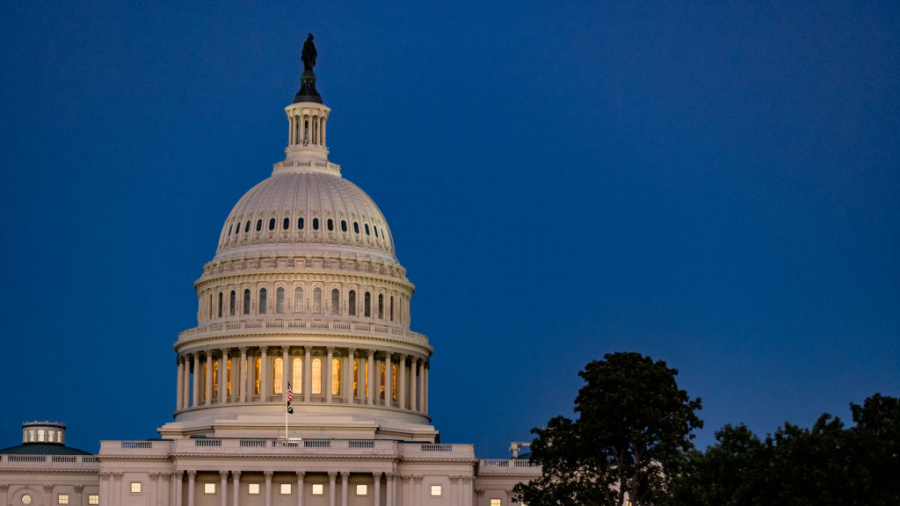The Senate late Thursday voted to approve a short-term increase to the federal debt ceiling by $480 billion through Dec. 3.
The debt ceiling already stands at $28.4 trillion and the bill would lift the debt limit to $28.9 trillion.
The bill heads to the House, where there is a clear Democratic majority, before moving to President Joe Biden’s desk.
House lawmakers will convene on Tuesday to vote on the measure, interrupting a scheduled recess that was set for the lower chamber until Oct. 19, its majority leader, Steny Hoyer (D-Md.), said in a statement.
“The Speaker and I have both spoken with Treasury Secretary Yellen, who said that if the House fails to act next week, the country will be unable to pay its bills. This cannot happen,” he said, adding that “immediate action” is needed to address the debt limit.
The measure is likely to avert a government default that was forecasted by the Treasury Department to happen by around Oct. 18.
The final Senate vote, which required a simple majority, was 50–48 along party lines. Sens. Richard Burr (R-N.C.) and Marsha Blackburn (R-Tenn.) didn’t vote.
The bill was moved to a final vote after 11 Republicans joined Democrats in a vote to invoke cloture in a vote of 61–38, ending a filibuster that required 60 votes.
The 11 were Senate Minority Leader Mitch McConnell (R-Ky.), Minority Whip John Thune (R-S.D.), John Cornyn (R-Texas), Lisa Murkowski (R-Alaska), Shelley Moore Capito (R-W.Va.), Richard Shelby (R-Ala.), Rob Portman (R-Ohio), Susan Collins (R-Maine), John Barrasso (R-Wyo.), Mike Rounds (R-S.D.), and Roy Blunt (R-Mo.).
Treasury Secretary Janet Yellen had warned that any default on U.S. debt would bring the economy into crisis and trigger a recession.
McConnell had proposed a deal with Democrats on Oct. 6 that would temporarily raise the debt ceiling before a government default, after twice blocking Democrats’ attempts to raise the cap. The offer came after Biden raised the possibility of bypassing the Senate’s filibuster rule requiring 60 of the 100 members to agree on most legislation.
After the vote, Senate Majority Leader Chuck Schumer (D-N.Y.) announced, “Republicans played a dangerous and risky partisan game, and I am glad that their brinksmanship did not work.”
Democrats had been trying to pass legislation that would have raised the debt limit through the end of 2022, which Republicans blocked.
With the debt ceiling pressure warded off for now, lawmakers continue to debate over two Democrat spending bills—a $1.2 trillion infrastructure plan with nearly $550 billion in new spending, and a $3.5 trillion effort that includes home health care and child care, education, safety net programs, and the environment. Both bills accord with the priorities in Biden’s jobs and families plan.
But by late November, their attention will have to return to funding the government and again avoiding the debt ceiling.
Reuters contributed to this report.
From The Epoch Times


